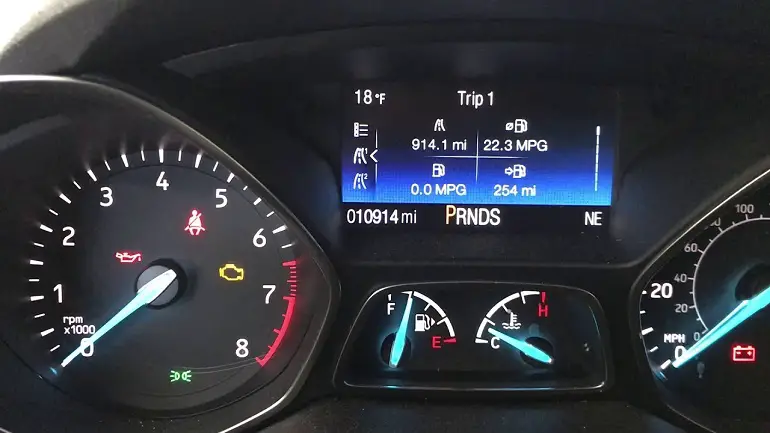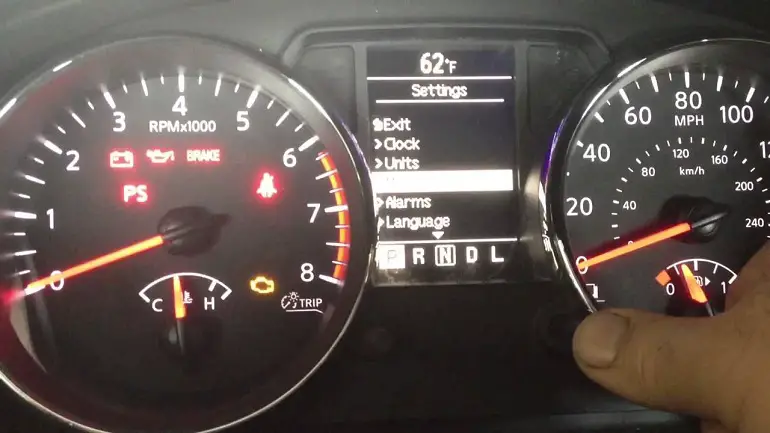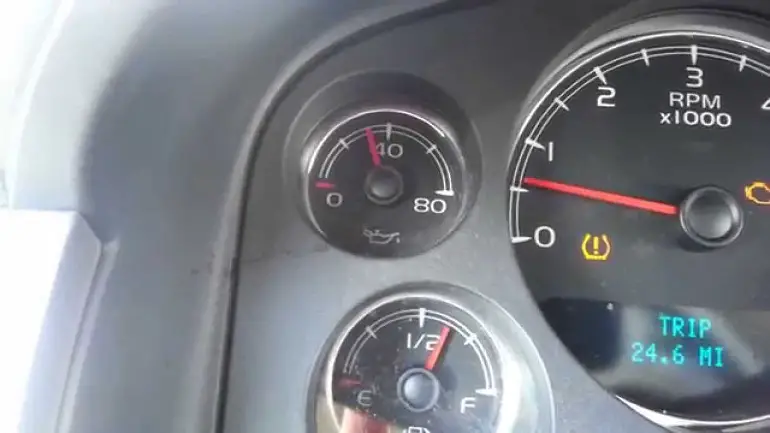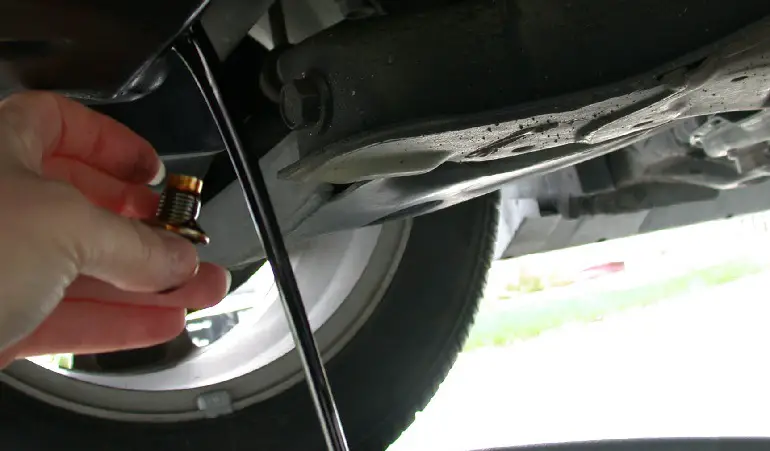Introduction
I was driving home from work one day when I noticed my oil light come on. I immediately felt a sense of panic. I pulled over to the side of the road and checked the oil level, but it was fine. I started the car back up, and the light went off. I was relieved, but I also knew that something was wrong.
I took my car to the mechanic the next day, and they told me that I had a low oil pressure problem. They said that if I had ignored the oil pressure light, I could have caused serious damage to my engine. I was so grateful that I had pulled over when I did.
This experience taught me the importance of taking care of my car. I now make sure to get regular oil changes, and I pay attention to the dashboard lights. I know that by taking care of my car, I’m also taking care of myself.
I hope that my story will help you to understand the importance of your car’s oil light. If you see it come on, don’t ignore it. Get it checked out as soon as possible. It could save you a lot of money and trouble in the long run.
What Is the Meaning of the Oil Light?

The oil light in a vehicle holds significant meaning and plays a vital role in safeguarding the engine’s life.
When the oil pressure sensor illuminates, it serves as a warning sign, indicating potential issues with the oil pressure or level. It signifies the need for immediate attention to prevent engine damage and ensure optimal performance.
The oil pressure warning light is an important feature in cars. Its presence evokes a sense of responsibility and cares toward the vehicle.
Whenever it lights up, a surge of concern washes over me, urging me to take swift action. It’s a reminder that the engine relies on a steady supply of clean and properly lubricated oil to function smoothly.
The low oil pressure light acts as a silent communicator, speaking volumes about the engine’s health. Ignoring its warning can lead to severe consequences, such as increased friction, overheating, or even complete engine failure.
Hence, understanding and respecting the meaning of the oil pressure gauge is crucial for maintaining the longevity and reliability of our beloved cars.
In essence, the oil light symbolizes the delicate balance between proactive maintenance and potential disaster. It underscores the need for regular oil checks, timely oil changes, and prompt attention to any oil leak issues.
By heeding its message, we honor the trust between driver and machine, ensuring a smoother and safer journey on the road.
Why Is My Oil Light On?

The illumination of the oil pressure light on your dashboard can trigger a surge of emotions and concerns. It serves as a warning sign, alerting you to potential issues with your vehicle’s oil system.
When I experienced this myself, a mix of worry and urgency enveloped me, as I knew the importance of addressing the situation promptly.
One possible reason why the oil light comes on is low oil pressure. This evokes a sense of anxiety and fear, as it indicates that the engine may not be receiving adequate lubrication, potentially leading to costly damage.
I recall the time when I neglected to check my engine oil levels regularly and the guilt I felt when the low oil pressure light served as a stark reminder of my oversight.
Additionally, an insufficient oil level, oil leaks, or a faulty oil pump could be the cause of the illuminated oil light. This realization brings forth a feeling of regret as I remember instances when I failed to top up the oil, unknowingly jeopardizing the engine’s well-being.
It serves as a personal lesson, emphasizing the importance of maintaining the proper oil level to ensure smooth operation and protect the engine from unnecessary harm.
In summary, the oil light serves as an emotional indicator, urging you to take action to safeguard your engine. Whether it’s addressing low oil pressure or ensuring sufficient oil levels, it’s crucial to respond promptly to protect the longevity and performance of your vehicle.
How Do I Know If My Oil Is Low?

To determine if your oil is low in the oil pan, there are a few indicators that can evoke a mix of emotions and prompt you to take action.
First, check the oil level using the dipstick. If the oil level falls below the recommended range or is near the minimum mark, it signifies that your oil is low. This realization can elicit a feeling of worry and responsibility as you understand the potential consequences of inadequate lubrication for your engine.
Another clue is the appearance of the engine oil light on your dashboard. When that little warning symbol illuminates, it can evoke a sense of urgency and concern.
The oil light serves as a powerful emotional trigger, a plea from your car to address the low oil situation. It serves as a reminder of the importance of regularly checking your oil level and maintaining it within the recommended range.
Additionally, you may notice symptoms such as engine noise or increased friction, which can cause unease and uneasiness. These signs indicate that your engine may not be receiving sufficient lubrication, further emphasizing the need to address the low oil situation promptly.
By paying attention to these emotional cues and taking action to address low oil, you can ensure the longevity and optimal performance of your engine, fostering a sense of confidence and peace of mind as you embark on your journeys.
Why Does the Oil Light Come On and Off?

Low Oil Level
A low oil level is a critical issue that demands immediate attention. It serves as a warning sign that the engine may not be receiving enough oil from the oil pickup tube.
Recognizing the significance of low oil pressure, I understand the importance of regular oil checks and maintenance to prevent this issue.
Addressing a low oil level promptly restores a sense of control and peace of mind, knowing that I am actively safeguarding the longevity and reliability of my vehicle.
Damaged Oil Pump
Having faced the consequences of a faulty oil pump in the past, I understand the urgency of seeking professional help to restore proper oil circulation and prevent further damage.
The emotional impact of a damaged oil pump fuels my determination to take immediate action. It is a reminder of the importance of regular maintenance and prompt resolution of any issues. By entrusting the expertise of professionals, I can ensure the engine’s health and regain the confidence to hit the road without worry.
This personal connection and commitment to addressing the damaged oil pump not only safeguard the performance of my vehicle but also provide a sense of reassurance and peace of mind.
Problematic Sensors
Problematic sensors can be a source of frustration and uncertainty in a vehicle. When sensors malfunction or provide inaccurate readings, it can evoke a mix of emotions.
These faulty sensors may trigger warning lights or provide incorrect data to the vehicle’s systems, leading to potential issues with engine performance, fuel efficiency, or safety features.
Resolving problematic sensors often requires professional diagnosis and repair to ensure accurate readings and restore confidence in the vehicle’s systems.
Clogged Oil Tube
A clogged oil tube can be a worrisome issue for a vehicle. When the oil tube becomes obstructed, it restricts the flow of oil to the engine, which can lead to reduced lubrication and potential damage. Recognizing the signs of a clogged oil tube, such as low oil pressure or engine overheating, prompts the need for immediate action.
Clearing a clogged oil tube often requires professional attention to ensure proper oil flow and maintain the engine’s health and performance.
Damaged Sensor Wires
Damaged sensor wires can cause disruptions and uncertainty in a vehicle’s performance. When the wires connecting the sensors become compromised, it can lead to faulty readings and erratic behavior of various systems. This situation can be frustrating and evoke a sense of confusion.
Resolving the issue typically involves inspecting and repairing the damaged sensor wires to restore accurate data transmission. Seeking professional assistance is essential to diagnose and address the problem effectively, ensuring the vehicle operates smoothly and reliably once again.
Oil Filters
Oil filters are integral components of a vehicle’s lubrication system. These filters are designed to remove contaminants and impurities from the engine oil, ensuring its cleanliness and optimal performance.
By trapping particles such as dirt, debris, and metal fragments, oil filters prevent these contaminants from circulating within the engine, reducing the risk of engine damage and wear.
Regularly replacing the oil filter is essential to maintain its effectiveness and ensure proper oil flow. By prioritizing the maintenance of oil filters, drivers can safeguard their engines, promote longevity, and maintain optimal performance.
Oil Leakage

Oil leakage is a serious concern that requires immediate attention. It can lead to a loss of lubrication, increased friction, and potential engine damage. Resolving oil leakage involves identifying the source and seeking professional assistance to fix the issue. Timely action ensures engine health, optimal performance, and peace of mind while driving.
Damaged Engine Parts
Damaged engine parts can cause a range of issues and impact a vehicle’s performance. Detecting and addressing these damaged components promptly is essential to maintain optimal engine function and prevent further damage. Seeking professional assistance for accurate diagnosis and timely repairs is crucial to ensure safety and extend the lifespan of the vehicle.
Final Thoughts
The oil light serves as a vital warning sign that should never be ignored. Whether it indicates any of the above-mentioned potential issues, the impact of the oil light’s illumination should spur immediate action. Taking prompt measures, such as checking the oil level, seeking professional assistance, and addressing any problems, can prevent severe engine damage and ensure the longevity and optimal performance of your vehicle.
Remember, the oil light serves as a beacon of caution and a reminder to prioritize the maintenance of your engine. Embrace the emotions it evokes, respond swiftly, and you’ll be rewarded with a reliable vehicle that accompanies you on countless adventures.


